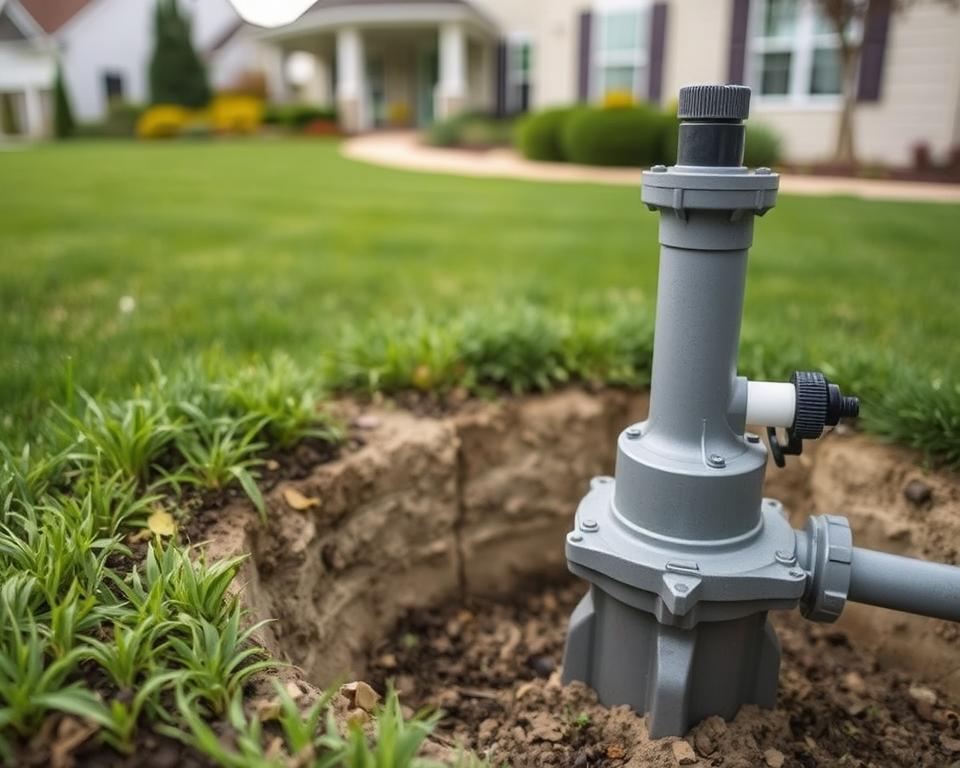Septic Tank Pump Swap: A Complete Guide
Ever wondered about the fallout of a Septic Tank Pump breakdown? For many, it’s a situation that creates major worry and sudden outlays. Noticing the need for timely replacement is essential in preserving a smooth and sanitary Septic system. By observing consistent inspections, including immediate repair needs, you lengthen your system’s life while avoiding high emergencies. Companies like All in Sanitation fulfil a crucial duty in ensuring your Septic tank running properly. This guide seeks to give a concise explanation of Septic Tank Pump replacement, exploring symptoms and care advice for septic tank cleaning companies near me.
Critical Findings
- Knowing the function of a Septic Tank Pump is crucial for homeowners.
- Timely Septic Tank Pump replacement can reduce long-term expenses.
- Scheduled care and cleaning are central to increasing the lifespan of your Septic system.
- Skilled support can effectively manage Septic system Pump repair and maintenance.
- Spotting first indicators of Pump failure can ward off pricey restoration.
Septic System Basics
A Septic system is important for homes without access to public sewers. It processes and removes household wastewater properly. The Septic tank is integral to this system’s functioning, holding a pivotal position in the process.
The Septic tank takes in sewage, separating solids from lighter matter. This division is vital for successful wastewater treatment. The cleaned water then travels to the drain field, where it experiences further purification by the soil, protecting groundwater.
Knowing how your Septic system works can increase its life and efficiency. Routine maintenance is critical for the Septic tank and the system’s overall condition. Homeowners must know their system’s components to protect the environment and sidestep high-cost work.
Defining a Septic Tank
A Septic tank is a subsurface, leak-proof container critical for household waste management systems. It’s vital to grasp the Septic tank’s main role: it manages sewage waste storage by breaking it down. This setup functions by distinguishing solids from liquids, enabling basic wastewater treatment and sanitation.
Its operation relies on naturally occurring microorganisms that digest waste. In areas without centralized sewage treatment, Septic tanks are indispensable. They hold sewage long enough for solids to descend, forming sludge. Meanwhile, liquid effluent rises to the top, allowing filtration in the drainage field.
Preserving a Septic tank in good condition is essential for its effectiveness and service life. Routine care is central to preventing issues like backups and overflows. These incidents can cause high bills and pose risks to the environment. In essence, Septic tanks hold a key place in ensuring hygiene and safety, especially in rural areas.

How to Tell a Pump Needs Replacing
Homeowners should be alert of signs that their Septic tank may need a new Pump. A clear sign is experiencing foul odors near drains or in the lawn, signaling a system failure. Experiencing recurring or severe sewage backups in your home needs swift action to head off worse issues.
Seeing slow draining drains signals a potential problem. Sinks, showers, or toilets that clear slowly might indicate a Pump failure or a clog calling for an expert’s evaluation. Additionally, spots of overly lush vegetation in your yard could indicate trouble; this reveals waste leakage, causing overflow concerns.
To sidestep large, pricey repairs, homeowners should deal with these symptoms quickly. Carrying out consistent inspections and maintenance is essential for the Septic system’s optimal function.
| Signs | Description |
|---|---|
| Foul Odors | Unpleasant smells around drains or yard suggesting system failure. |
| Sewage Backup | Frequent backups in sinks or toilets suggesting potential Pump issues. |
| Slow Draining Drains | Fixtures draining slowly can point to blockages or Pump malfunction. |
| Lush Vegetation | Areas of excess growth near the tank suggesting possible overflow. |
How Often Should You Replace Your Septic Pump?
Grasping the schedule for replacing your Septic Pump is key for a smooth-running Septic system. It’s sensible to have your system assessed every three years. A trained technician during these visits offers details into how well your system performs.
Typically, cleaning the Septic tank becomes essential every five years. However, households with heavy usage or a big family might need service more often. Proper care of your Septic system avoids pricey work and prolongs its lifespan. Professionals in Septic services can design a maintenance plan that matches your household load and the specifics of your system.
Remaining prepared with Septic Pump replacements maintains your system’s smooth running and defends your home investment. Consistent checks and care dodge sudden bills. They ensure trouble-free performance.
Pump Replacement Pricing
The Septic Pump replacement cost fluctuates, affected by many variables. Homeowners should anticipate paying from $500 to $1,300 for a new Pump. This price bracket covers differences in the kind of Pump and material needs. It’s important to factor in the Pump and Septic tank servicing costs for the placement and obligatory inspections.
Costs can also rise due to complexities within the Septic system or area labor costs. Essential repairs, prompted by wear or harm, could inflate the total outlay. In reviewing financial estimates for Septic services, factor in charges for routine care, assessments, and any emergency calls since these factors critically aid in maintaining your system’s longevity.
Setting aside money for consistent Septic service minimizes the impact of unforeseen costs. Upfront planning aids homeowners in managing expenses related to the Pump’s replacement and system upkeep.
Steps in Pump Replacement
The Septic Tank Pump replacement starts with a deep inspection of the system. This opening check identifies any additional issues other than the Pump itself. The faulty Pump is then extracted safely and swiftly.
Installing the new Pump entails meticulous focus to tight connections, making sure no leaks. Expert crews see that the installation is accurately completed, reducing future issues.
The final step is a comprehensive final inspection. It checks peak operation, providing homeowners assurance. With qualified aid, the process is seamless, creating minimal hassle.
Tips for Installing Your Pump
When handling Septic Pump installation, it’s essential to stick to best practices. Hiring experienced experts secures compliance with local regulations. They competently oversee the installation intricacies, preventing errors common in inexperienced setups.
Following precise Septic service standards is central for smooth system flow. Choosing proper parts and reliable materials lengthens the Pump’s life and improves the Septic system’s efficiency. This meticulous attention elevates maintenance and overall performance longevity.
- Select a reputable service provider who is experienced in Septic systems.
- Ensure that all necessary permits and inspections are in place before work commences.
- Select Pumps that meet the specific requirements of your Septic system.
- Incorporate a pre-installation inspection to check site conditions.
- Pay attention to the layout and flow of the Septic system during installation.
Following these guidelines creates a trouble-free install. It also guarantees a reliable system for sound wastewater control.
Upkeep Tips
Heading off costly problems with your Septic system commences with regular maintenance. By following straightforward guidelines, homeowners can keep their Septic systems’ efficiency. Scheduling routine inspections is a smart move. It finds and address problems before they become serious.
It’s also vital to stop flushing undesirable things down the drain. Cooking oil, chemicals, and items that don’t break down can injure your system. Cutting water use during high-usage times can also help the Septic system cope better.
Booking professional cleanings with entities like All in Sanitation is essential for Septic health. Knowing what you can and cannot do with your Septic tank can materially boost its lifespan and safeguard your household environment.
Cleaning Service Basics
Routine Septic tank cleaning is important for your system’s long-term function and efficiency. The process includes sludge removal, inspecting for damage, and confirming everything works well. These steps are vital to ensure continuous performance and ward off high restoration costs.
A comprehensive Septic maintenance plan should include periodic assessments and cleanings that fit your specific needs. Homeowners must recognize the importance of timely maintenance to stop troubles like backups. Employing specialists confirms the cleaning is complete, fostering a clean living environment.
| Service Type | Frequency | Benefits |
|---|---|---|
| Pumping | Every 3-5 years | Wards off system failure and backups |
| Inspection | Annually | Finds potential issues early |
| Maintenance | As needed | Lengthens the lifespan of the system |
Investing in periodic Septic tank cleaning reduces expenses and prolongs your system’s life. It supports uninterrupted waste treatment. Acting now guarantees your Septic system’s efficiency for the future.
Picking a Pump Replacement Provider
Selecting a dependable Septic service provider is important when replacing a Septic Tank Pump. Start by checking their certifications and licenses. Such credentials validate the company’s compliance with industry norms, necessary for a trouble-free replacement process.
Reviewing customer reviews is also a vital move. Past feedback reveals a lot about service quality, helping with the filtering process. Opt for companies with a consistent track record of excellent workmanship and customer support.
Listen to recommendations from your community too. Insights from friends and neighbors can highlight top-notch Septic services in your vicinity. Always request detailed accounts of their successful projects with these services.
Finally, evaluate the work scope and cost from various firms. A thorough analysis secures exceptional service and maximizes the value of your expenditure. Keeping to these guidelines secures your Septic system receives the premium care it deserves.
DIY vs. Professional Service
Homeowners often debate whether to manage Septic issues by themselves or hire specialists. DIY Septic maintenance is attractive for basic fixes and upkeep. For example, monitoring Septic tank levels or snaking lines can be done on your own.
On the other hand, recognizing when to hire Septic professionals is important for grave issues. Complicated repairs, replacing systems, or severe obstructions need specific equipment and skills. Without the proper expertise, attempts to fix these problems can create ecological hazards and significant harm.
Determining between DIY and professional help demands evaluating the job’s complexity. Presented below are examples highlighting when DIY is adequate and when professional Septic services are recommended:
| Situation | DIY Feasibility | Need for Professional Help |
|---|---|---|
| Routine maintenance (e.g., tank level checks) | Yes | No |
| Minor clogs in drain fields | Yes | No |
| Major Septic Tank Pump failure | No | Yes |
| Complex sewage backflow issues | No | Yes |
| Regular system inspections | DIY optional | Yes for thorough checks |
Deciding smartly on these matters assures safety and efficiency. Selecting well both protects and preserves the Septic system but also prevents sudden charges.
To Summarize
Knowing the workings of your Septic system is vital for its efficient oversight and your home’s performance. Identifying early signs of issues prevents high repair bills and protects the system’s wellbeing. This preventive approach helps the environment and boosts your property value.
To preserve your Septic system in excellent condition, make sure of maintenance. This includes routine checks and scheduled professional Pumping. This modest investment maintains your home’s safety and your family’s health. Your Septic system operates smoothly with adequate service.
Our team at All in Sanitation is devoted to providing premium Septic care. We offer the experience necessary to keep your system working optimally, defending your home investment over time. With our dedication to reliable support and dependability, we’re here for your Septic maintenance needs.

